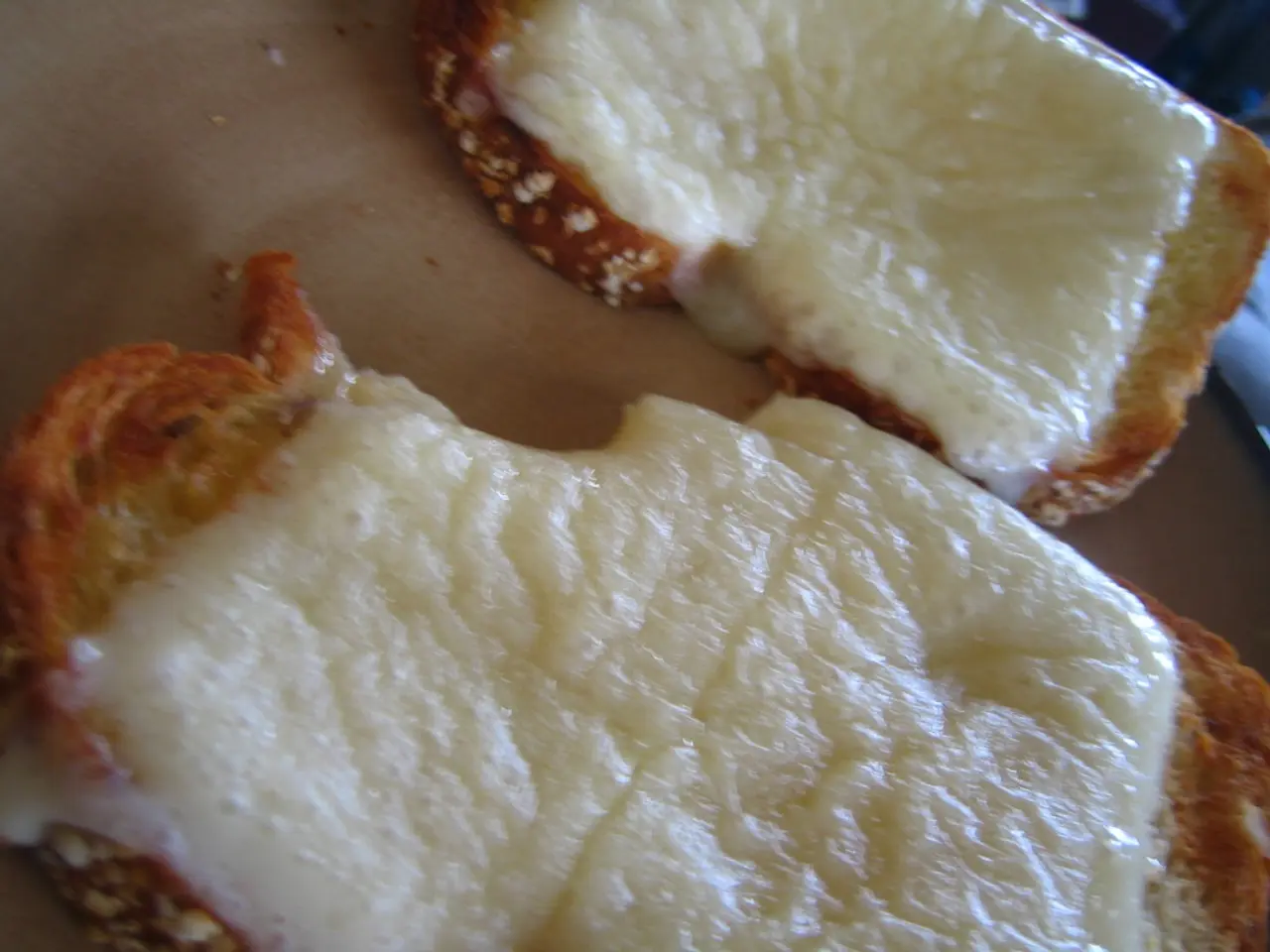Top-tier Retinol Solutions for Acne: Explore Creams, Serums, and More Options
In the realm of skincare, two popular treatments for acne and anti-aging stand out: over-the-counter (OTC) retinol and prescription retinoids. While both share similarities, their differences can significantly impact your skincare routine.
OTC Retinol
OTC retinol products, such as the Alastin Skincare Skincare Renewal Retinol 0.5, Peach & Lily Vitamin A Retinol Serum, and the SkinCeuticals Retinol 0.5 Refining Night Cream, are milder alternatives. Retinol is a vitamin A derivative that requires conversion by the skin to become active retinoic acid. This multi-step process makes retinol generally less irritating than prescription retinoids.
These products are available in various formulations like creams, gels, and serums, often combined with moisturizing or exfoliating ingredients to reduce irritation. Retinol can help with mild acne, skin texture, and anti-aging but acts more gradually and with typically lower irritation risk.
Prescription Retinoids
Prescription retinoids, like tretinoin and tazarotene, are stronger agents that act faster and are more potent because they do not require conversion steps. They are regulated as drugs and usually prescribed for moderate to severe acne due to their strong pore-unclogging, anti-inflammatory, and skin turnover effects.
However, these stronger agents tend to cause more irritation, dryness, redness, and peeling, especially in the first weeks of use. Adapalene 0.1% gel, a prescription-strength retinoid now available OTC, offers a middle ground in potency and tolerability for acne treatment.
Comparing the Two
Both OTC retinol and prescription retinoids promote increased skin cell turnover, unclog pores, and stimulate collagen. The main differences lie in their speed and the potential severity of side effects. OTC retinol products are milder and slower-acting, suitable for mild acne and maintenance, while prescription retinoids deliver faster, more potent acne treatment at the cost of higher irritation risk.
Specialised Products
For people with darker skin tones, the MELE Even Dark Spot Control Facial Serum for Melanin Rich Skin aims to help combat dark spots and discoloration due to acne. The Cetaphil Healthy Radiance Renewing Cream, designed for sensitive and mature skin, includes 2% niacinamide to combat hyperpigmentation, bakuchiol, a plant-based retinol alternative, and is fragrance, paraben, and oil-free.
La Roche Posay Effaclar Adapalene Gel 0.1% Topical Retinoid for Acne may suit those affected by blackheads, whiteheads, and clogged pores, and it claims to prevent new acne lesions from forming. The Dermalogica Retinol Acne Clearing Oil uses slow-release retinol to help acne-prone skin recover overnight.
Acne Statistics
Acne affects 50 million Americans annually, according to the American Academy of Dermatology Association. In 2013, over 5.1 million people sought medical treatment for acne. A doctor may prescribe prescription-strength retinoids to treat severe or chronic acne.
La Roche Posay states that adapalene is the first prescription-strength product available without a prescription, offering a more accessible option for acne treatment. The Paula's Choice Clinical 1% Retinol Treatment, with 1% retinol, is more potent than many similar retinol products. The SkinCeuticals Retinol 0.5 Refining Night Cream may reduce discoloration, blemishes, and the appearance of pores.
- Retinol, a vitamin A derivative, is found in over-the-counter skincare products like the Alastin Skincare Skincare Renewal Retinol 0.5.
- The Peach & Lily Vitamin A Retinol Serum is another OTC retinol product that requires conversion by the skin to become active.
- The SkinCeuticals Retinol 0.5 Refining Night Cream is an OTC retinol cream option combined with other ingredients for reduced irritation.
- Tretinoin and tazarotene are two examples of prescription retinoids, stronger agents that act faster and are more potent due to not requiring conversion steps.
- Adapalene 0.1% gel, now available OTC, offers a middle ground in potency and tolerability for acne treatment.
- OTC retinol products are generally less irritating because they undergo a multi-step conversion process in the skin.
- People with darker skin tones may benefit from the MELE Even Dark Spot Control Facial Serum, designed to help combat dark spots and discoloration due to acne.
- The Cetaphil Healthy Radiance Renewing Cream, designed for sensitive and mature skin, includes ingredients like niacinamide and bakuchiol to combat hyperpigmentation.
- La Roche Posay Effaclar Adapalene Gel 0.1% Topical Retinoid for Acne may prevent new acne lesions from forming.
- Dermalogica Retinol Acne Clearing Oil utilizes slow-release retinol to help acne-prone skin recover overnight.
- Acne affects 50 million Americans annually, according to the American Academy of Dermatology Association.
- In 2013, over 5.1 million people sought medical treatment for acne.
- A doctor may prescribe prescription-strength retinoids to treat severe or chronic acne.
- La Roche Posay states that adapalene is the first prescription-strength product available without a prescription, offering a more accessible option for acne treatment.
- The Paula's Choice Clinical 1% Retinol Treatment has a higher concentration of retinol than many similar products.
- The SkinCeuticals Retinol 0.5 Refining Night Cream may reduce discoloration, blemishes, and the appearance of pores.
- Both retinol and prescription retinoids promote increased skin cell turnover, unclog pores, and stimulate collagen.
- However, prescription retinoids have a higher risk of causing irritation, dryness, redness, and peeling compared to OTC retinol.
- In the health-and-wellness sphere, mental-health concerns such as depression are of increasing importance alongside physical fitness and sexual-health issues.
- Mens-health, women's-health, parenting, and weight-management are hot topics in the fitness-and-exercise and sports industries, with big-wins often shared in casino-culture through casino-games, lotteries, and Las Vegas trends.




